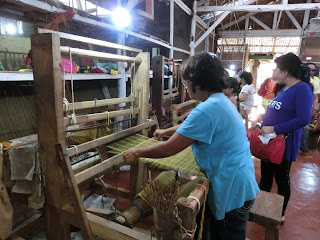loneliness - holy hour sto. nino chapel
There
is sickness which affects 10 percent of the population. The sickness is called chronic
loneliness. It is described as chronic
because it is prolonged and continuing.
Actually all of us feel lonely from time to time. It may not be chronic. It may only be transient. Nevertheless it is said that only 22 percent
of us do not feel lonely. This means
that a little less than 80 percent of us do feel lonely, some from time to
time, others in a more or less prolonged state.
It is quite ironic that in an age where we worry so much about
over-population (kagutok na gid sang kalibutan) and we have with us the
greatest means of communication the world has ever seen – cellphones, emails,
messaging, twitter etc. and etc., and yet loneliness is in fact more common
today.
Feeling lonely has little to do with how many friends you
have. Some of us have 3000 friends in Facebook but we still feel lonely. Some may find themselves in the middle of a
crowd or even in the middle of a party, and yet feel lonely. This is because loneliness has less to do
with the number of people you surround yourself with. It is how you feel inside you. It is the perception of being alone and
isolated that makes us feel lonely. It
is a state of the mind.
So what is the cause of loneliness? Why do you feel lonely? The answer to this question is the same
answer why we have a fever or why we produce so much phlegm in our throats and
in lungs or why there is pain in a particular part of the body. Why, because pain call our attention to an
infection. Why, because there is a cut
or a wound or some damage in the tissue.
Pain is always a warning that something is wrong. It is a warning that something is not being
done. It is telling us that something is
not given proper and due attention. This
is also the function of loneliness. It
points us to something important, something that is hurt in our lives that we
are not giving proper and due attention.
A psychologist by the name of Karyn Hall
observed saying, “Just as physical pain protects people from physical dangers,
so also loneliness may serve as a social pain to protect people from the
dangers of being isolated. It may serve as a prompt to change behavior, to pay
more attention to relationships which are needed for survival.”
Today in this anniversary of our weekly
holy hour I would like us to reflect on the desire and prayer of our Lord Jesus
that all may be one. This is not just a
prayer for Christian unity. This is not
just a prayer that the different Christian denominations may once more become
one flock with one shepherd. Yes it is
that, but it is more than that, for it is also a call to awareness that we need
each other, that we cannot live in isolation, that we cannot live apart from
each other, that we are meant to become a community, a communion of persons. It is the desire of our Lord that we should
not remain alone and isolated from one another.
That is why the prayer that we may be one just as he and the Father are
one.
When God created man, God said, “It is not
good for man to be alone.” The word used for the word alone is not just simply
alone. It is the aloneness of one in the
desert. To be alone in the desert means
to die, one cannot survive in the desert alone.
We are human beings and we are not made to be alone and just for
ourselves, but we are made to each other, we are made to become a community,
and being aware that we are community, that we are not alone, is important.
Today we are made aware that we are a
communion of the saints that we are gathered together – the saints in heaven,
the saints in purgatory and the saints still struggling here on earth.
Two reminders then:
First, you are not alone. Think about that because as it is observed by
psychology loneliness is a state of the mind.
It is a perception of being alone.
No, we are not alone. We are a
communion of the saints, gathered around in Jesus.
Second, let us make each other feel that
he or she is not alone. Overwhelmingly, people rate love,
intimacy, and social connections as contributing to their happiness above wealth or social fame.
In Africa a
tribe called the Zulus greet each other by saying sawubona. It is translated into english as “I see you.”
I am not just greeting you, we are not just passing by, it is not just saying
hi or hello. It is telling each one that
“I see you. I take notice of you. I know you.
I am with you.

Comments